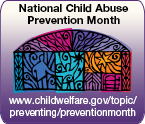It's important as parents to spend that one on one time with them without devices and without interruptions so they will be happier and develop into a "mentally healthy adult."
In the spirit of summer coming up, I found several very interesting activities you can do with your children at home! Check out my pinterest page entitled "Kids Stuff" to see activities such as filling eggs with paint and throwing them at canvas, making moon sand, doing ice chalk during the summer, flight school, and sharpie dishes. Important activities with your kids are such that inspire creativity, imagination, and possibly cooperation with others or independent worked. Please leave comments of activities you enjoy with your kids!
Pinterest page: https://www.pinterest.com/candycane881/kid-stuff/
Referenced article: http://psychcentral.com/news/2015/04/19/improve-parenting-skills-by-remembering-how-to-play/83720.html#.VTWP4NxR_So.facebook


 RSS Feed
RSS Feed
